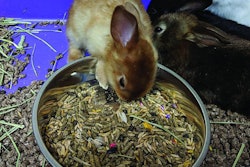
Pets in Hong Kong and New Zealand are getting the short end of the stick as the effects of strict government rules and high cost of living force their humans to leave many of them in animal shelters, if not the streets.
In New Zealand, animal shelters are sounding the alarm as crowding and lack of resources become serious as more Kiwis give up their pets in the face of punishing inflation that has gone through the roof and making pet ownership rather expensive for many at the moment.
Media reports said the situation is ongoing all over the country and throughout 2022. Interviews with several animal shelter administrators point to the same reason: people can't afford their pets anymore. While there are animal welfare groups that run pet food pantries, pet care programs and adoption events, many pet owners still make the hard decision of relinquishing their pets.
In July, the government extended NZ$350 financial assistance to anybody earning below $70,000. Over 2 million people were reportedly eligible to receive the cash aid, in three monthly payments starting with $116. A household with one cat or one dog is expected to spend $62 and $95, respectively, a month. The government aid could cover this cost, if the pet owners choose to spend it first on pet food—but then they would have little left over to spend on other essentials.
Meanwhile, the Hong Kong government's zero-Covid policies characterized by strict quarantine measures and the new National Security Law imposed by Beijing, China in 2020 have caused an alarming exodus of people and pets to other countries. Unfortunately, a lot of pets only managed to go as far as the local shelters.
Data from the Hong Kong Immigration Department show a little over half a million people – locals and foreigners – left Hong Kong since the start of 2022. Last year, 901,000 left, with or without their pets. So far this year, the former British colony has issued around 3,700 animal health certificates which is a requirement for pet travels. Almost 9,000 were issued in 2021 although it may not all be for pet travels.
Animal shelters said the intake of abandoned pets have not slowed down but adoptions have not kept pace.
The ongoing pet crises in Hong Kong and New Zealand could result in depressed pet food industries that might need to recalibrate their growth forecasts for 2022. With fewer pets to feed, activities around pet food that include production, import and export, consumer spending and pet consumption could slow down.
In 2020, Euromonitor estimated the total pet population in Hong Kong, including smaller mammals such as rabbits and rodents, as well as birds, fish, and reptiles, at over 1.2 million, which was far more than the census department's figure of 405,200 pets in 2019.
New Zealand, on the other hand, claims to have roughly 4.6 million pets, a number that has hardly changed for five years. In 2019, the country imported $120 million worth of pet food from the United States.

















